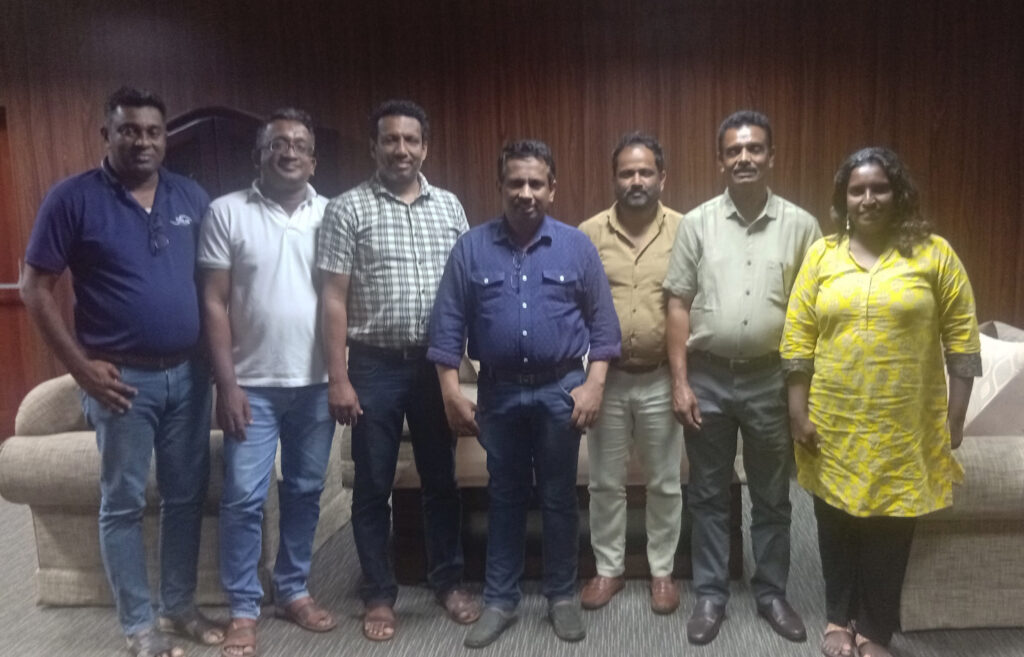MONLAR Representatives Meet with Plantation Minister to Address Malaiyaha Community Rights
In a significant development for Sri Lanka’s plantation sector, representatives from the Movement for Land and Agricultural Reform (MONLAR) met with Plantation Industries and Infrastructure Minister Samantha Vidyaratne on April 07, 2025, to discuss longstanding issues faced by the Malaiyaha Tamil community.
The meeting, held at the Ministry of Plantation Industries headquarters, focused on addressing land rights, housing, food sovereignty, and other critical concerns that have affected the plantation community for generations.
MONLAR representatives highlighted their 20-year advocacy campaign for the rights of Malaiyaha people, presenting a comprehensive four-point proposal to the Minister. The proposal includes providing 20 perches of land to each family for housing, developing essential infrastructure, securing land rights to preserve the community’s religious and cultural identity, and implementing measures to improve their overall living conditions.

“This meeting represents a crucial step toward recognizing the historical injustices faced by the Malaiyaha community,” said a MONLAR spokesperson. “Their contributions to Sri Lanka’s economy through plantation labor have been immense, yet their basic rights remain unfulfilled.”
The discussions also addressed the ongoing crisis in the plantation industry. MONLAR proposed an innovative approach to revitalizing the sector through environmentally sustainable and community-centered methods. Their vision includes transitioning to Agroecological farming practices, ensuring food sovereignty, and establishing worker-owned cooperatives to manage plantation operations.
Minister Vidyaratne reportedly engaged deeply with the proposals, discussing practical challenges and potential government actions to address these longstanding issues.
The Malaiyaha Tamil community, descendants of workers brought from South India during the colonial era to work on Sri Lanka’s tea and rubber plantations, has faced persistent challenges related to citizenship, land rights, and economic security.
Industry observers note that addressing these historical inequities could be pivotal not only for social justice but also for revitalizing Sri Lanka’s struggling plantation sector, which has faced declining productivity and worker shortages in recent years.
Both parties agreed to continue discussions, with MONLAR offering to share successful models from international contexts where similar challenges have been effectively addressed.
ALL CONTACTS
- No. 57, 1st Lane, Meda Welikada Road, Rajagiriya, Sri Lanka.
- +94 112 870 369
- monlar@sltnet.lk
- www.monlar.lk
SUBSCRIBE
Subscribe us to get latest updates of Sri Lankan Peasant movement
Error: Contact form not found.
- Monlar - Copyright 2024
- donations@ong.com
- volunteers@ong.com
- contact@ong.com










Leave a Reply